The exams regulator Ofqual has today released the results of its annual survey on the perception of GCSEs, A-levels, and other qualifications in England.
Over 2,000 people were consulted, including 262 headteachers, 601 teachers, 313 young people, and 365 academics.
Carried out by YouGov, this is the 15th survey of its kind commissioned by Ofqual and was conducted using an online questionnaire from November 2 and December 2 last year.
It comes in the midst of new rigorous qualifications, a new grading system for GCSEs, and the introduction of a new National Reference test.
Schools Week has the key points:
1. Only half of headteachers, and one in 10 teachers, aware of new National Reference Test
Overall, 85 per cent of stakeholders answered “no” when asked if they were aware of the introduction of new annual National Reference Test this year.
Alarmingly, only 50 per cent of headteachers answered “yes” to the question. And just 12 per cent of teachers said they were aware of it. A total of 92 per cent of pupils also answered “no”.
However the research was carried out last year – before the tests were taken for the first time by roughly 18,000 pupils in February and March this year.
But out of the 244 people who said they were aware of the new test, four in ten said they did not have adequate information about its roll out.
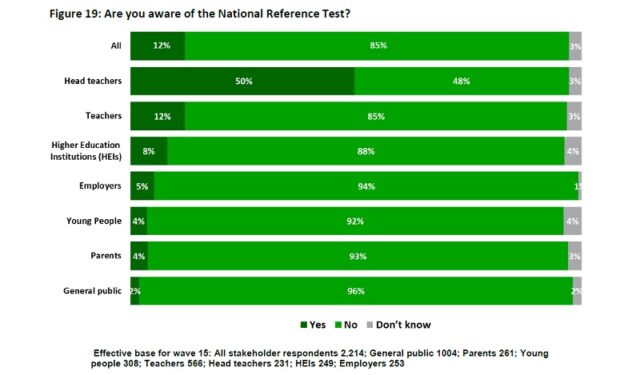
2. Nearly two-thirds of parents unaware of new 1-9 grade system – but number is growing
Out of all stakeholders surveyed, knowledge of the new grading scales has increased by eight percentage points from last year, now standing at 66 per cent.
As would be expected, all headteachers said they were aware of the changes, while awareness among youngsters (84 per cent) rose significantly.
Six in ten parents, however, still remain unaware of the new system (see table below), while employers and the general public seem even less informed, according to the survey.
Although understanding of 9 being the top mark rose in all of the stakeholder groups apart from parents.
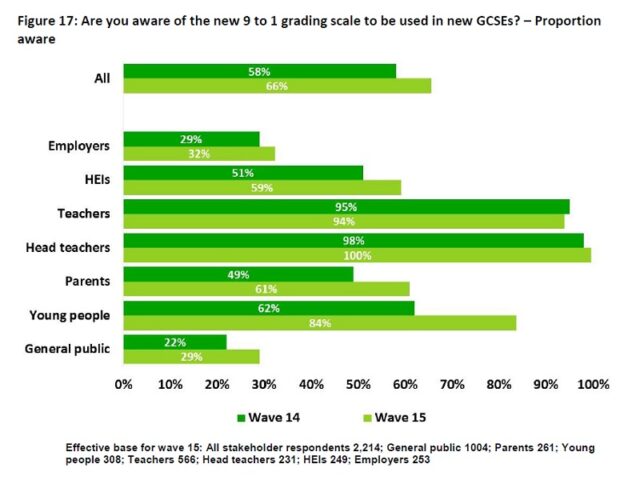
3. Confidence and understanding of GCSEs is rising
Seven in ten people surveyed said GCSEs are “well understood”, up from 66 per cent last year. A slightly higher amount (72 per cent) believe GCSEs are a “trusted qualification” which again has increased from 65 per cent in the previous survey.
Headteachers slightly increased their belief that GCSEs are well understood compared to last year, but it is still some way off of their confidence from two years ago, when 83 per cent agreed.
However the real test of confidence being upheld will come in the next survey – when tougher GCSE reforms will have bedded in, and the 1-9 grade system would have kicked in.
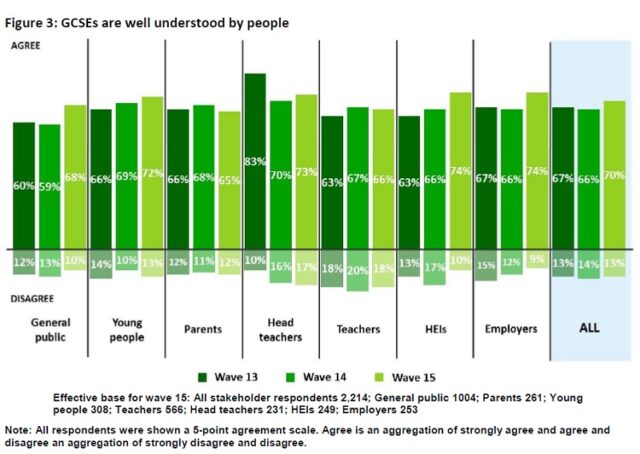
4. But knowledge of A-levels is sliding
There was a slight fall in the understanding of how A-levels work, mainly among employers. The general public, youngsters and parents also continue to least understand the qualification.
Trust in the marking of A-levels has actually risen by 10 per cent, but still remains pretty low (just four in 10 people agreeing the marking is “accurate”).
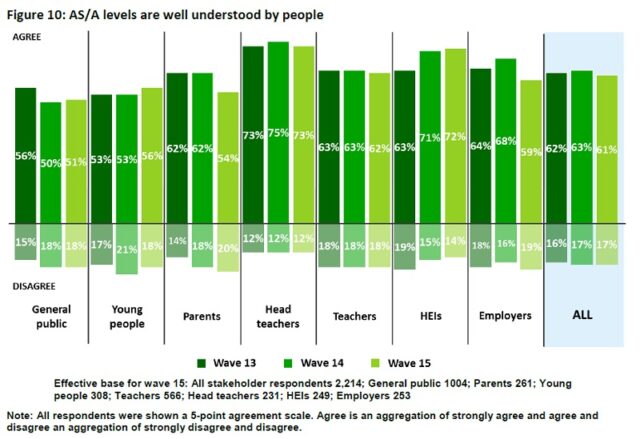
5. Pupils and parents still unaware of the exam appeals system
Despite wide coverage of Ofqual’s recent change its exam appeals system – around a third of parents are still unaware such a system is actually in place. Nearly four in 10 youngsters are also oblivious to the appeal procedure.
Four in ten people who are aware of the appeals system, however, think it is unfair.
The figures are even lower when stakeholders were asked if they were aware they could appeal against results for vocational qualifications.
Just 45 per cent of heads said they were aware of an appeals process, along with only a quarter of teachers, and one in youngsters.
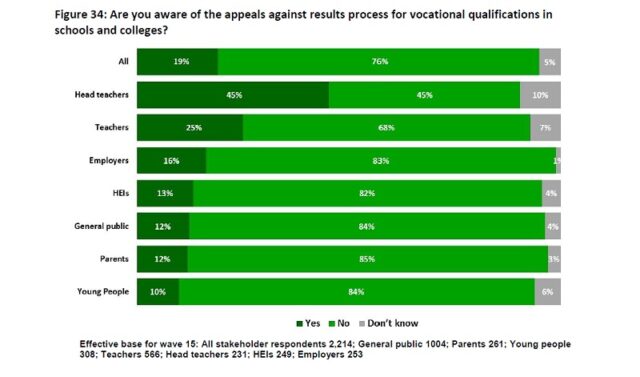
6. What Ofqual said:
Michelle Meadows, deputy chief regulator at Ofqual, said the rise in confidence of qualifications followed the regulator engaging the sector over reforms and other changes introduced.
“We continue to be in a period of major reform and many of the systems and processes surveyed in this report are currently changing. There will inevitably be a period of bedding in as teachers and schools become more familiar with the changes. This is certainly true of the National Reference Test.”
Meadows said the regulator has done more work since the research to boost awareness of the new 1 to 9 grading structure – such as television adverts – meaning the current position is “likely to be better than reported here”.

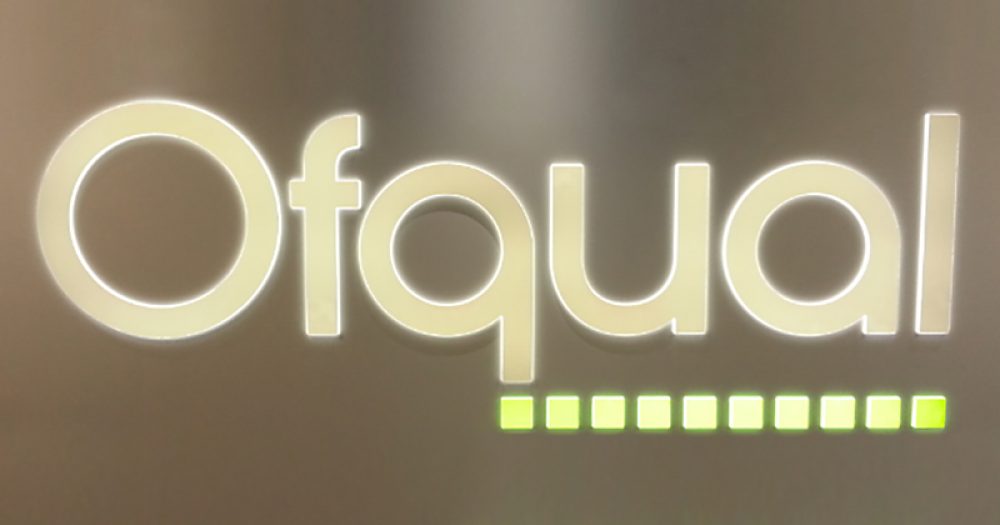





Your thoughts